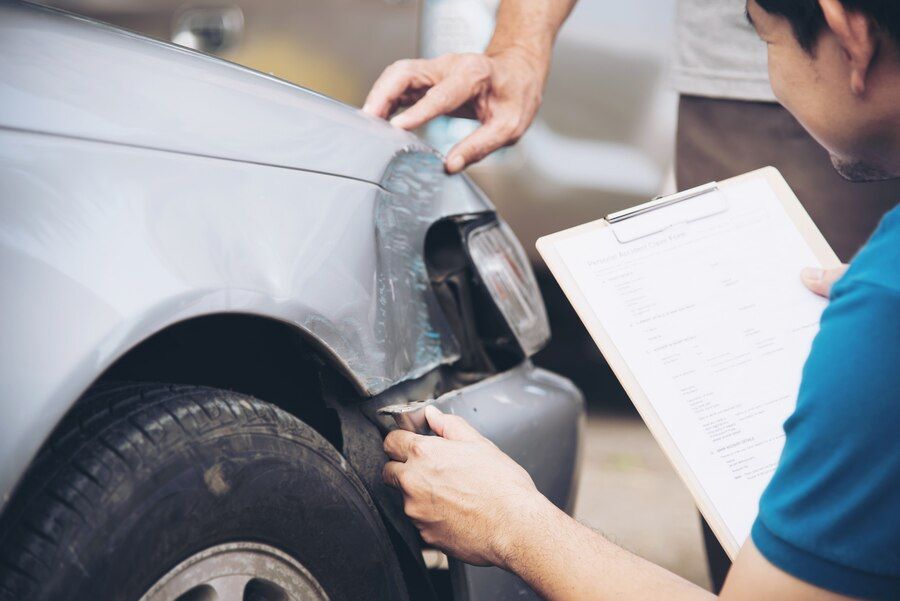
Navigating the aftermath of a car accident can be overwhelming, especially when it comes to understanding the legal obligations and timelines involved. Like many other states, reporting a car accident promptly is crucial in Nevada. But what happens if you’re unable to report the accident within 24 hours? Let’s delve into Nevada’s car accident laws to shed light on this matter.
How Long Do I Have to Report a Car Accident in Nevada?
Nevada, like many states, has specific rules regarding reporting car accidents. According to Nevada law, you are required to report a car accident to the police if it results in injury, death, or property damage exceeding $750. Failure to do so within a reasonable time could result in legal consequences. However, the law does not specify an exact timeframe within which the report must be made.
Nevada Car Accident Laws: Notifying the Police Following a Car Accident
One of the first steps after a car accident is to notify the police. A police report is a crucial piece of documentation and can greatly impact the outcome of any legal proceedings or insurance claims. It’s advisable to contact a police officer even for minor accidents, as this report can help establish the facts of the incident and determine liability.
If You Fail To Report the Accident
Failing to report a car accident as required by Nevada law can have serious consequences. It can lead to fines and potential legal trouble and may also affect your ability to file an insurance claim. Insurance companies often require a police report to process claims; without one, you may find it challenging to obtain compensation for damages.
When Must I Report a Car Accident to the DMV?
Apart from notifying the police, you may also be required to report the accident to the Nevada Department of Motor Vehicles (DMV). According to Nevada law, you must file a DMV accident report within 10 days if the accident involves injury, death, or property damage exceeding $750. Failure to submit this report within the specified timeframe can result in the suspension of your driver’s license.
Notifying the Insurance Company of the Car Accident
In addition to reporting the accident to the authorities, timely notification to your car insurance company is crucial. Most auto insurance policies have specific requirements regarding the reporting of accidents. While there might not be a strict 24-hour deadline, the sooner you inform your insurance provider, the smoother the claims process is likely to be.
Understanding the Claims Process: What to Expect
A car accident can disrupt your life in more ways than one, often leaving you with physical injuries, emotional distress, and financial burdens. Understanding the claims process is crucial in securing the compensation you deserve.
Immediate Steps After the Accident
Ensure safety and well-being.
File a police report and exchange information such as driver’s license number.
Notify your auto insurance company promptly.
Initiating the Claims Process
An insurance adjuster is assigned to assess damages and injuries.
Expect a call from the adjuster for information gathering.
Documentation and Information Gathering
Provide comprehensive documents:
Accident report
Medical records
Photographic evidence
Witness statements
Repair estimates
Evaluation of Liability
The insurance adjuster investigates to determine fault.
Relies on evidence, police reports, and possibly witness statements.
Settlement Negotiations
The adjuster negotiates a settlement for damages and injuries.
Be prepared for back-and-forth discussions.
Resolving Property Damage Claims
Assess repair costs for vehicle or property damage.
Choose a repair shop or accept compensation for a total loss.
Handling Bodily Injury Claims
Evaluate medical records, treatment costs, and long-term effects.
Document all medical expenses and follow the treatment plan.
Seeking Legal Assistance
If negotiations become challenging, consider legal assistance.
Personal injury attorneys can negotiate and pursue legal action if necessary.
Finalizing the Settlement
Once a settlement is reached, review and sign a release form.
Ensure it covers all damages, both current and potential future costs.
Nevada Law and Bodily Injury: Seeking Compensation
Nevada operates under a tort system, meaning that the at-fault party is responsible for covering the damages resulting from the accident. If you sustain injuries in an auto accident, you may be entitled to compensation for medical expenses, lost wages, and pain and suffering. Seeking legal guidance from a personal injury attorney can help you navigate Nevada law’s complexities and protect your rights.
Statute of Limitations and Legal Help
It’s important to know the statute of limitations for filing a personal injury lawsuit in Nevada. Generally, you have two years from the accident date to pursue legal action. Seeking legal help promptly is in your best interest, as gathering evidence, obtaining witness statements, and establishing fault are crucial aspects of building a strong case.
Hit and Run Incidents: Reporting the Accident
If you’re involved in a hit-and-run accident or the at-fault party is unknown, reporting the incident to the police becomes even more critical. Nevada law requires you to report a hit-and-run accident within 10 days, and failure to do so can result in criminal charges and other legal consequences.
How an Attorney Can Help in a Car Accident Case
Engaging an attorney after a car accident can provide numerous benefits and significantly aid you in navigating the complex aftermath. Here’s how an attorney can assist you in your car accident case:
Understanding State Laws: Attorneys are well-versed in state-specific laws, ensuring your case adheres to local legal requirements.
Investigation and Evidence Gathering: Attorneys can conduct thorough investigations, collecting evidence to strengthen your case.
Communication with Insurance Companies: Experienced lawyers talk to insurance companies on your behalf to ensure they look out for your best interests.
Determining Fault: Attorneys can establish liability by examining accident details, assessing evidence, and presenting a compelling case.
Maximizing Compensation: Attorneys are experienced in valuing claims and can help you understand the full extent of damages.
Handling Complex Legal Procedures: Attorneys manage paperwork and legal procedures, ensuring everything is filed correctly and within deadlines.
Dealing with Disputes and Litigation: In case of disputes, attorneys can file lawsuits and represent you in court if necessary.
No Upfront Costs: Many personal injury attorneys work on a contingency fee basis, meaning payment is only required if you receive compensation.

Contact BLG for Legal Help
In conclusion, understanding Nevada car accident laws and the importance of timely reporting is essential for protecting your rights and ensuring a smooth claims process. While there may not be a strict 24-hour deadline for reporting an accident, prompt action is strongly advised. Whether you’re dealing with minor property damage or serious injuries, following the correct procedures and seeking legal guidance when needed will contribute to a more favorable outcome. Remember, reporting an accident promptly is a legal obligation and in your best interest when seeking compensation and resolving the aftermath of a car crash.
If you’ve recently been in a car accident and have questions about reporting it in Nevada, BLG is here to help. Our experienced team specializes in navigating the intricacies of car accident cases, ensuring that your rights are protected and you receive the compensation you deserve.
Contact BLG today for a free consultation.
FAQs
Is it illegal not to report a car accident?
In many places, there is a legal obligation to report a car accident, especially if there are injuries, significant property damage, or fatalities. Failure to report an accident may result in legal consequences. It’s advisable to check the specific laws in your jurisdiction to understand the reporting requirements.
What is the time limit for insurance claims?
The time limit for filing an insurance claim can vary depending on your policy and the type of claim you are making. Reviewing your policy documents or contacting your insurance provider to determine the specific deadlines for reporting and filing claims is essential. Generally, it’s recommended that accidents be reported as soon as possible.
How many points is a no-insurance ticket?
The number of points assigned for a no-insurance ticket can vary by jurisdiction. Driving without insurance is a serious offense in many places, and it may result in points accumulating on your driving record. The specific number of points and the penalties associated with a no-insurance ticket will depend on local laws. Check with your local Department of Motor Vehicles (DMV) or a legal professional for accurate information pertaining to your area.





